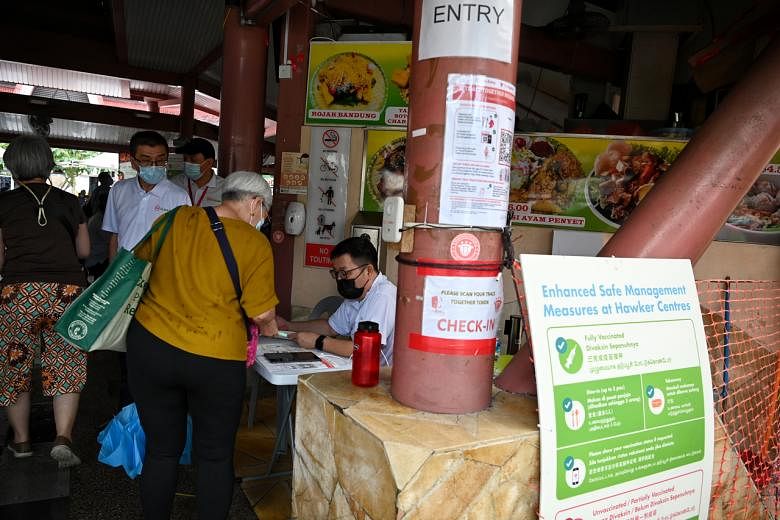SINGAPORE - A local survey released recently found that 70 per cent of people here would like to see the Government make Covid-19 vaccination compulsory, with only 14 per cent disagreeing with such a move.
This is not surprising, given that the Government has been saying the unvaccinated are more likely to get seriously ill and die should they get the disease.
The Ministry of Health (MOH) media statement on Dec 2 said: "The number of fully vaccinated and non-fully vaccinated cases who are critically ill in the ICU are at 0.5 and 4.2 per 100,000 population respectively.
"Over the same period, the number of fully vaccinated and non-fully vaccinated cases who died are 0.1 and 0.5 per 100,000 population respectively."
While one might argue that the choice to get sick and die belongs to the individual, there is impact on the community. The disproportionate use of healthcare services by unvaccinated people who get infected has put a strain on hospitals, and this has affected services for others who need hospital treatments.
However, while the Government has not come out to make vaccination compulsory, preferring to use the velvet glove to persuade rather than the iron fist to insist, it has actually already done so.
By introducing vaccination-differentiated safe management measures (VDS), it has, de facto, made vaccination mandatory if people want to enjoy the freedoms given to the majority of the population.
For a regulation to work, it must have teeth to ensure that people abide by the rule. Otherwise, it is a futile exercise.
What penalty can the Government impose should it want to mandate Covid-19 vaccination?
For foreigners, it's easy: Don't allow them into the country if they are not vaccinated.
That's what we do to children of foreigners working here who do not have the legally required immunisation against measles and diphtheria. They may visit, but are denied a dependant's pass.
But for Singaporeans and permanent residents, it becomes more difficult. It's not something to send someone to jail for. At the most, they will be fined.
The Infectious Diseases Act has provision for a fine of up to $500 for the first conviction, and up to $1,000 for a second or subsequent conviction for not getting vaccinations that are mandated.
This is unlikely to get the 4 per cent of eligible population who have yet to get vaccinated against Covid-19 to change their minds, since they are likely to be strong in their views.
But by having VDS, the Government is making it painful for the unvaccinated.
For example, they cannot go out to dine with four friends. They may attend meetings or musical and sporting events - but they need to do antigen rapid tests (ARTs), which they have to pay for themselves, to show that they are not infected and, hence, not a threat to others.
In other words, there is a penalty for not getting vaccinated, even though there is nothing in the laws requiring individuals to do so.
In fact, this is much easier to enforce than going out looking for people who have yet to get vaccinated.
If the unvaccinated stay home and do not go out, then they will not be inconvenienced. This doesn't mean that they won't get infected, for visitors can transmit the disease.
For such people, should they get infected, the penalty is that they will need to pay for their own medical bills, while those who have been vaccinated have their entire treatment cost taken care of by the Government.
This is not as harsh as it might sound since they are still entitled to government subsidies and insurance coverage. But it is, nevertheless, a penalty for not getting vaccinated.
But the strongest penalty, really, is if they should get infected, they risk getting more severely ill. That, more than any other penalty, should be the strongest incentive to get vaccinated.
Mandating vaccination for Covid-19 has another drawback.
Is it something that we will need for many years to come? Once Covid-19 becomes endemic, should there still be insistence on everyone getting regular booster shots? Should the law be repealed, and if so, when?
VDS measures are easier to manage. When Covid-19 is no longer the threat it is today, these can easily be removed. But while they are needed, they act as a penalty for not getting vaccinated, and protection for the rest of society who have been vaccinated.












